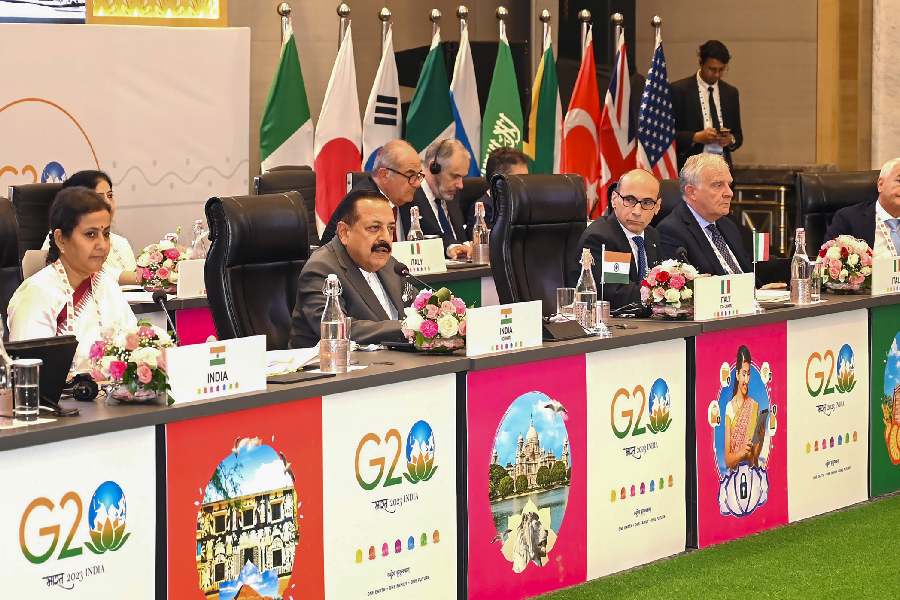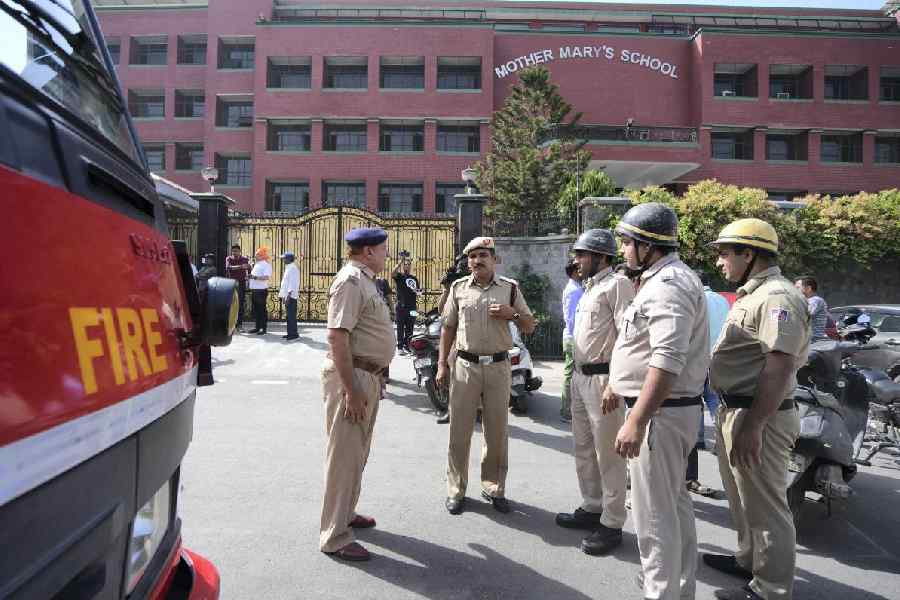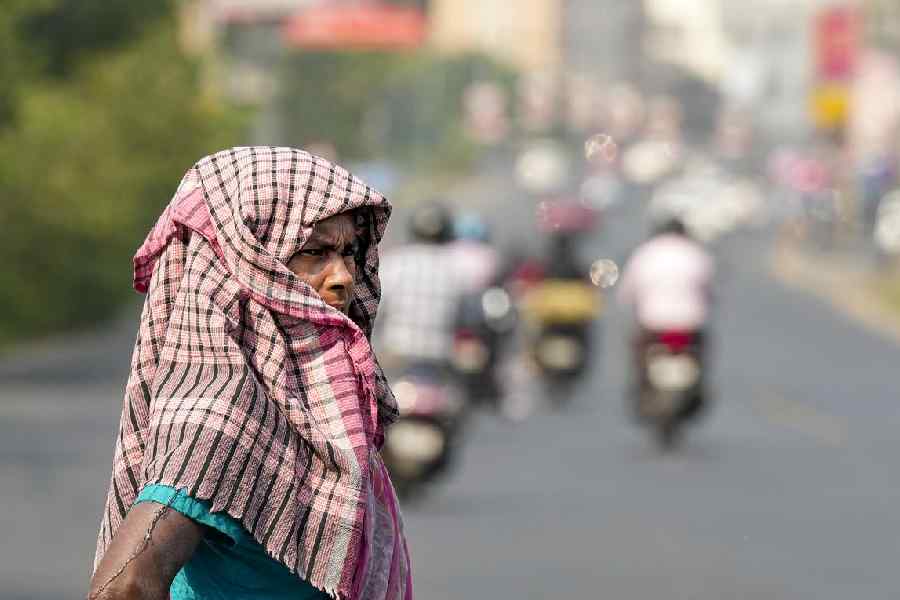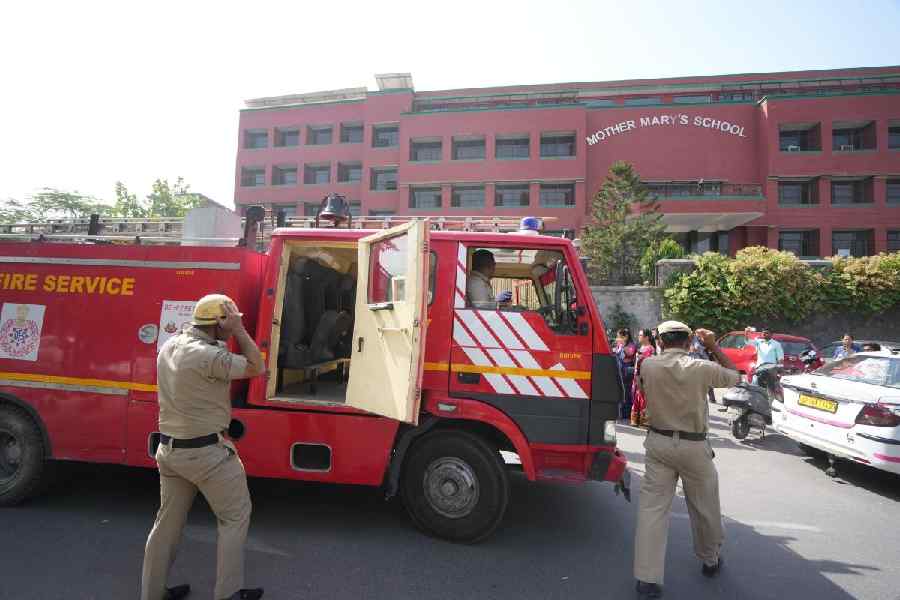Union Minister Jitendra Singh on Saturday stressed on faster extradition of fugitive economic offenders and recovery of their assets, besides achieving a "corruption-free world" during the crucial G20 anti-graft ministerial meeting here.
He said fugitive economic offenders pose a significant challenge to both national and international law enforcement as they are able to exploit gaps and differences between legal and financial systems of countries to evade justice.
"Fugitive economic offenders commit grave economic crimes in their home country and flee to another country to avoid arrest, prosecution or the execution of their sentence," said Singh, the Union Minister of State for Personnel.
He said economic crimes include a wide range of illegal activities such as fraud, tax evasion, money laundering and embezzlement.
Their actions undermine the rule of law, hamper economic development and often contribute to corruption, Singh said.
He said the G20 Anti-Corruption Working Group (ACWG), under India's presidency, has been successful in building consensus on important issues related to strengthening law enforcement cooperation, information sharing and asset recovery mechanisms.
"We, as the G20, need to be bold in our ambition and work together to address the lacunaes in international cooperation to combat corruption. I am sure that G20 members will take concrete steps to implement these principles to enhance the effectiveness of extradition mechanisms, and to facilitate better tracking of cross-border financial flows which will deter fugitive economic offenders," the minister said.
Singh said India has been a strong advocate of a robust and holistic approach to tackle corruption.
He said it is the responsibility of G20, as leaders of the world's major economies, to ensure that "we continue this momentum until this vision of achieving a corruption-free world becomes a reality".
"By prioritising and implementing robust anti-corruption policies, we can set global benchmarks for transparency, integrity and accountability. We have the power to enhance international cooperation against corruption which includes harmonising anti-corruption laws, enhancing information sharing, and strengthening cross-border investigations and prosecutions," the minister said.
Singh highlighted the work towards the finalisation of the "accountability report" on a very important subject of mutual legal assistance and said its findings and recommendations will be very useful in improving and strengthening cooperation between countries in combating transnational crime and maintaining global security.
"These are important steps towards dealing with the menace of fugitive economic offenders," he added.
Addressing the G20 Anti-Corruption Ministerial meeting here, Singh said India's zero-tolerance approach towards corruption also guides "our approach towards international cooperation for combating corruption".
He said technology, transparency and public participation form the bedrock of anti-corruption efforts.
"Corruption can be countered by harnessing technology to enhance transparency and by fostering a culture of active citizen participation. I welcome the efforts of all G20 members to highlight the role of Information and Communication technology in preventing and combating corruption," the minister said.
He said modernising governance, improving efficiency and enhancing service delivery offer pathways to minimising corrupt practices.
Singh said the G20 ACWG has made commendable progress on preparation of a compendium of good practices on the role of auditing in fighting corruption.
"I hope it will prove to be an important knowledge resource to enhance good governance, integrity, accountability and transparency in public and private sectors by using audit as a key tool," the minister said.
Singh said corruption has a greater impact on weak and marginalised section of the society, particularly targeting women for coercive corruption and exploitation.
"I commend the ACWG for putting the spotlight on gender differential impact of corruption and its acknowledgment as a critical issue that requires concerted efforts by all of us," he said.
Pointing out that corruption undermines democracy and the rule of law, Singh said it perpetuates inequality and erodes public trust in institutions.
"Corruption disproportionately affects the poorest and most marginalised members of society. Corruption also fuels transnational crime and terrorism by enabling illicit flow of money, and even directly financing criminal groups, which has direct bearing on the national security of countries. All the countries of the world face the negative impact of corruption in one way or the other," he said.
Singh said the fight against corruption may be long and arduous but it is not impossible to win and asked all to commit themselves to this cause and create societies where prosperity and justice are not undermined by the scourge of corruption.
He said the fight against corruption is all the more important in these times since the world today is confronted with unparalleled and diverse challenges, including the Covid pandemic, supply-chain disruptions, geopolitical conflicts and climate-related incidents.
"All these have derailed the progress and development achieved by the world in the past," the minister added.










